Maintaining a forklift is not just about keeping it running; it’s about ensuring safety, efficiency, and longevity of your investment. Regular maintenance is crucial to prevent downtime and costly repairs, ensuring that forklifts are always ready to perform their essential roles in warehouses and job sites. Enter Upright Forklift Repair, a beacon of expertise in the realm of forklift care.
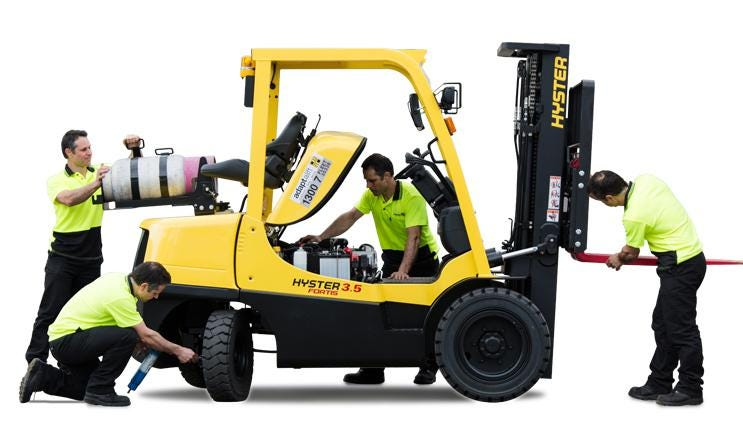
Specializing in repairs, service, and the provision of spare parts, Upright Forklift Repair stands as a pillar of support for businesses relying on these critical machines. Whether it’s a diesel powerhouse or a nimble electric model, our team is equipped to keep your fleet in prime condition, ensuring that a well-maintained forklift is a constant in your operations.
The Essential Forklift Maintenance Schedule
Deciphering Your Forklift’s Maintenance Needs
A forklift is not a ‘one size fits all’ piece of machinery; each type demands a unique maintenance regimen. Diesel and electric forklifts, for instance, face different challenges and wear patterns, necessitating tailored maintenance schedules. Diesel models, known for their robustness and power, require regular checks on engine oil, air filters, and fuel systems to combat the rigors of heavy lifting and constant use.
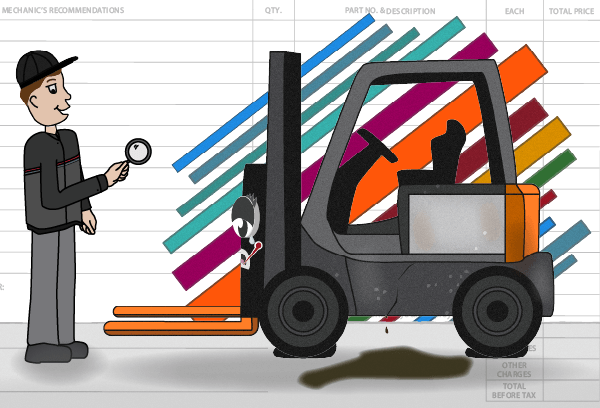
Electric forklifts, on the other hand, benefit from a focus on battery care, electrical systems, and hydraulic oil checks to ensure efficiency and longevity. Recognizing and addressing these specific needs is essential for maintaining operational reliability and extending the life of your forklift fleet. Upright Forklift Repair’s expertise spans these diverse needs, providing tailored maintenance schedules that keep your machines running smoothly.
Diesel vs. Electric Forklift Maintenance
Diesel Forklift Maintenance Checklist
For diesel forklifts, the maintenance checklist is your roadmap to reliability.
Key areas of focus include:
- Engine Oil: Regular changes and level checks ensure the engine runs smoothly, protecting it against wear and overheating.
- Air Filter: A clean air filter is essential for efficient operation, preventing dirt and debris from entering the engine and causing damage.
Adhering to these checkpoints can dramatically extend the lifespan of a diesel forklift, ensuring it remains a reliable workhorse in your operational fleet.
Electric Forklift Maintenance Checklist
Electric forklifts, while generally requiring less maintenance than their diesel counterparts, still need regular attention:
- Electrical System: Regular inspections can prevent electrical failures, ensuring all components are in good working order.
- Battery Care: Proper charging and maintenance of the battery extend its life and ensure the forklift has enough power for its tasks.
- Hydraulic Oil Check: Keeping the hydraulic oil at the correct level and condition is crucial for smooth operation and preventing mechanical wear.
Implementing a rigorous maintenance schedule for electric forklifts can prevent common issues and ensure these machines continue to operate efficiently and safely.
By adhering to these tailored maintenance schedules, businesses can ensure their forklifts — whether diesel or electric — are always in peak condition, minimizing downtime and maximizing productivity. Upright Forklift Repair stands ready to partner with businesses in achieving this goal, offering expert advice, service, and parts to keep your fleet moving.
Brand-Specific Maintenance Strategies
Toyota Forklift Service Intervals
Toyota forklifts, renowned for their reliability and performance, require precise maintenance to sustain peak operation. Key service intervals include regular hydraulic oil checks and adjustments to ensure the forklift operates smoothly under various loads.
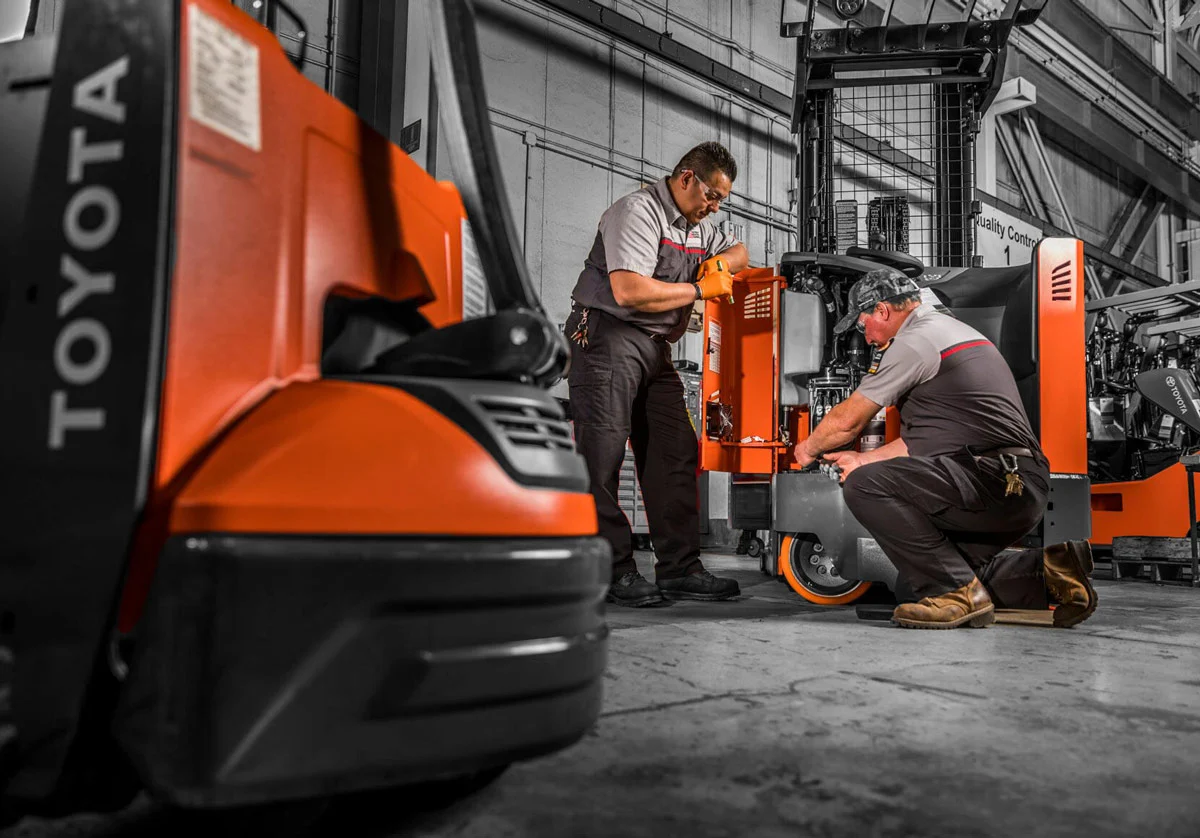
Additionally, Toyota recommends specific intervals for speed adjustments to optimize operational efficiency and safety. Following the manufacturer’s guidelines, such as the Toyota forklift service intervals, is crucial for maintaining the longevity and reliability of the forklift.
Regular checks should include inspecting the mast operation, lift chains, and brakes, along with the engine and electrical systems, to ensure everything functions as it should. Adhering to these intervals keeps the forklift running efficiently and helps identify potential issues before they escalate into costly repairs.
Caterpillar and Hyster Forklift Maintenance Schedules
Caterpillar (Cat) and Hyster forklifts are built to handle tough conditions, but like all machinery, they benefit from a disciplined approach to maintenance. For Cat forklifts, the maintenance schedule emphasizes regular checks on the engine, transmission system, and hydraulic components to prevent unexpected failures.
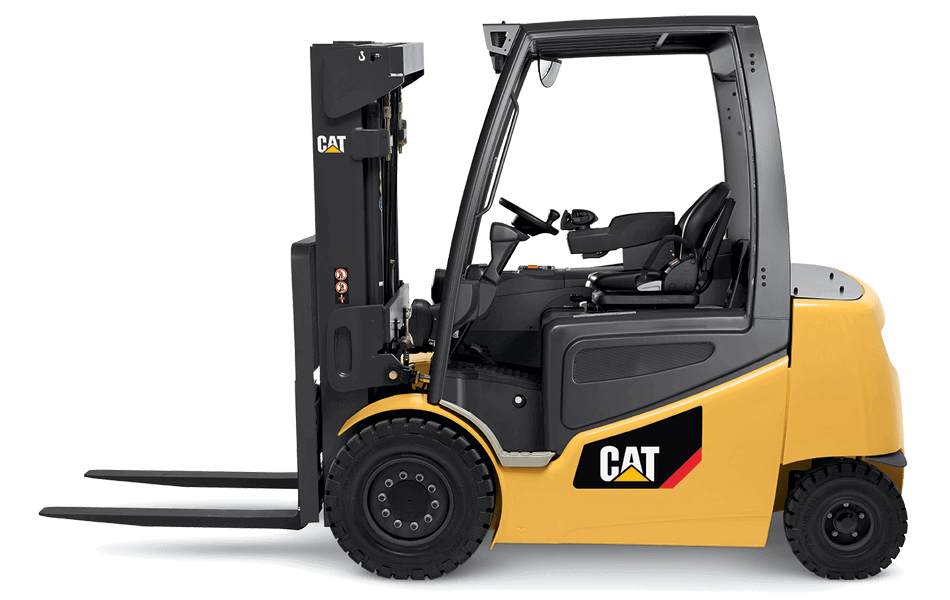
Hyster forklifts, similarly, require consistent attention to ensure their heavy-duty capabilities are always ready for action. This includes following the Hyster forklift maintenance schedule, which outlines critical tasks such as inspecting the mast components for wear, checking the hydraulic system for leaks, and ensuring the electrical system is functioning properly.
Both brands emphasize the importance of adhering to a maintenance plan that aligns with the specific usage patterns and environments their forklifts operate in, ensuring each vehicle remains a reliable part of your fleet.
DIY Maintenance Tips for Forklift Operators
Forklift operators play a crucial role in the day-to-day maintenance of their machines. Engaging in simple, yet effective, DIY maintenance can significantly contribute to the longevity and reliability of a forklift. Operators should regularly check the steer axle to ensure it moves smoothly without resistance, indicating well-maintained components. Following the operator’s manual guidelines is paramount; it provides specific maintenance tasks tailored to the forklift model.

Additionally, conducting safety checks before each use — inspecting the brakes, warning lights, and safety features — can prevent accidents and identify issues before they require professional attention. These straightforward practices empower operators to maintain their forklifts effectively, contributing to a culture of safety and efficiency within their operations.
The Essential Guide to Maintenance Schedules and Checklists
Optimizing Forklift Fleet Performance
Maintaining your forklift fleet is pivotal to ensuring your equipment’s operational efficiency, safety, and longevity. A comprehensive forklift maintenance schedule and detailed checklist are the cornerstones of a well-run fleet, whether it involves electric forklifts, internal combustion forklifts, or both.
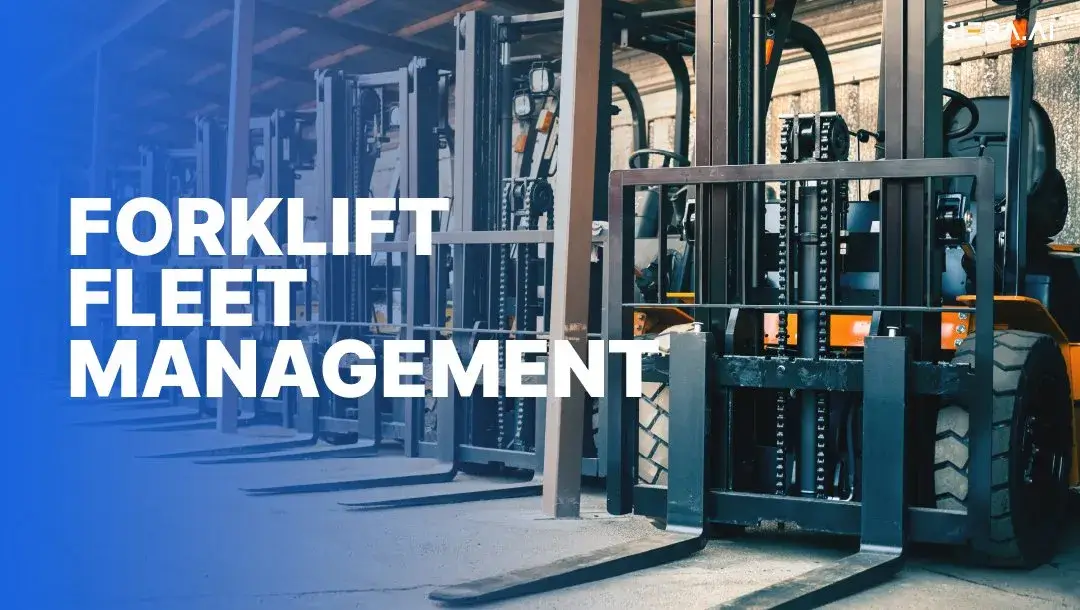
Understanding the nuances of forklift maintenance—from engine oil changes to hydraulic oil pump inspections—is crucial for keeping your lift trucks in tip-top shape.
Key Maintenance Tasks for Electric and Internal Combustion Forklifts
Regular maintenance tasks for electric forklift maintenance include checking the electrical system, ensuring the battery and mast components function correctly, and verifying the hydraulic oil levels are within recommended ranges.
For internal combustion forklifts, maintenance extends to inspecting the air filter, fuel system, and ignition timing, alongside lubricating chassis and inspecting the radiator. Each task, from transmission oil changes to steer axle checks, contributes to a reliable and efficient forklift fleet.
The Key to Preventative Maintenance and Safety
Forklift operators play a significant role in regular maintenance, performing safety checks and monitoring for unusual noises or mast operation issues. Daily maintenance checks, guided by the operator’s manual, can identify minor issues before they escalate into expensive repairs.
These checks include monitoring engine oil levels, engine fluids, and ensuring safety features like the seat belt, hand brake, and load backrest are in good working order.
Maximizing Forklift Efficiency and Safety Through Proactive Maintenance
Adhering to a maintenance plan not only safeguards against unexpected repairs but also optimizes maintenance costs. Annual maintenance and service intervals are scheduled to inspect critical components such as mast support bushings, carriage rollers, and clutch release bearings, ensuring every part of the forklift operates smoothly and efficiently.
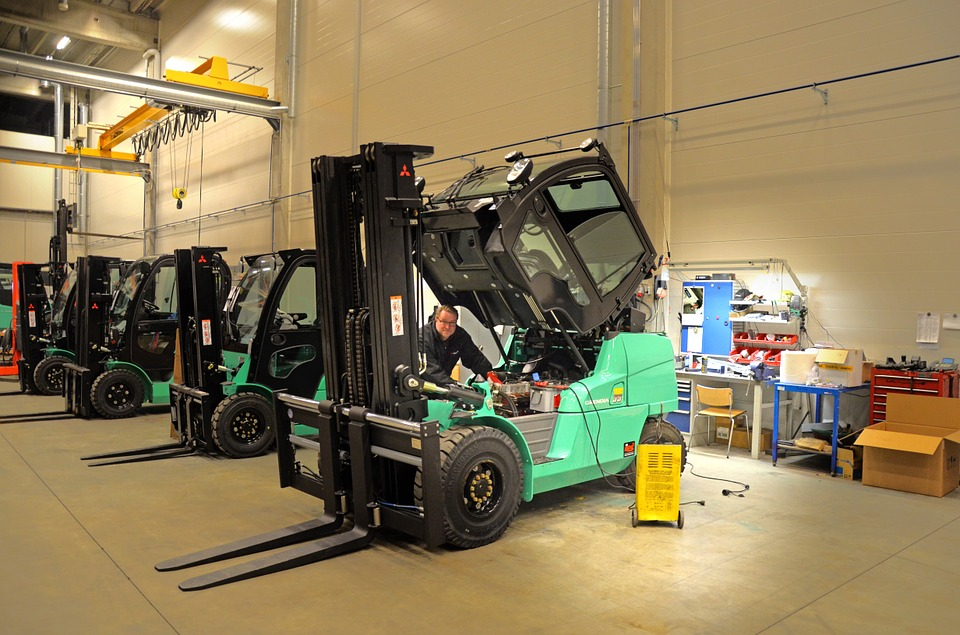
This proactive approach to maintenance helps avoid accidents, extend the lifespan of your forklift, and save money in the long run by mitigating the need for less maintenance over time.
The Key to Effective Maintenance Planning
Implementing a forklift maintenance plan involves more than just following a maintenance schedule. It requires a commitment to perform regular maintenance, understanding the maintenance checklists, and knowing when to seek professional help for more complex issues.
With the right attention to maintenance tasks, your forklifts will remain reliable workhorses that support your operations’ success, keeping your forklift fleet running smoothly and efficiently, while ensuring safety and performance are never compromised.
Advanced Maintenance Tasks: When to Call the Pros
Identifying the Need for Professional Maintenance
While regular checks and basic maintenance can be managed by operators, certain signs necessitate professional intervention. Unusual noises, such as grinding or squealing, often indicate underlying issues with the forklift’s mechanical components that require expert attention.
Similarly, difficulties in mast operation, including jerky movements or inability to raise and lower smoothly, can signal serious concerns with the hydraulic system or the mast itself.
These signs should not be ignored, as they can lead to operational failures, safety risks, and more significant repair costs down the line. Promptly addressing these symptoms by seeking professional maintenance can ensure the forklift remains safe and operational, preventing downtime and preserving the machine’s longevity.
Upright Forklift Repair: Your Maintenance Partner
Upright Forklift Repair stands as your dedicated ally in maintaining your forklift fleet at its best. Specializing in a wide range of services from specialized repairs to routine maintenance, and offering an extensive catalog of spare parts, our team is equipped to address the unique needs of your forklifts.
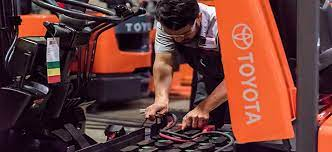
Whether it’s a complex repair or a standard service interval, Upright Forklift Repair’s expertise ensures your forklifts receive the care they need to operate reliably and efficiently. Trust us to keep your fleet running smoothly with professional maintenance services that cover everything from hydraulic issues to electrical system repairs, ensuring your operations never skip a beat.
Creating a Forklift Maintenance Plan for Your Business
Developing a comprehensive forklift maintenance plan is essential for ensuring operational efficiency and safety. Start by considering the size of your forklift fleet and the intensity of its usage, as these factors significantly influence maintenance needs.
Each forklift brand may also have specific maintenance requirements; thus, it’s important to integrate these into your plan. Include regular inspection and service intervals based on manufacturer recommendations, and adjust these based on your operational demands.
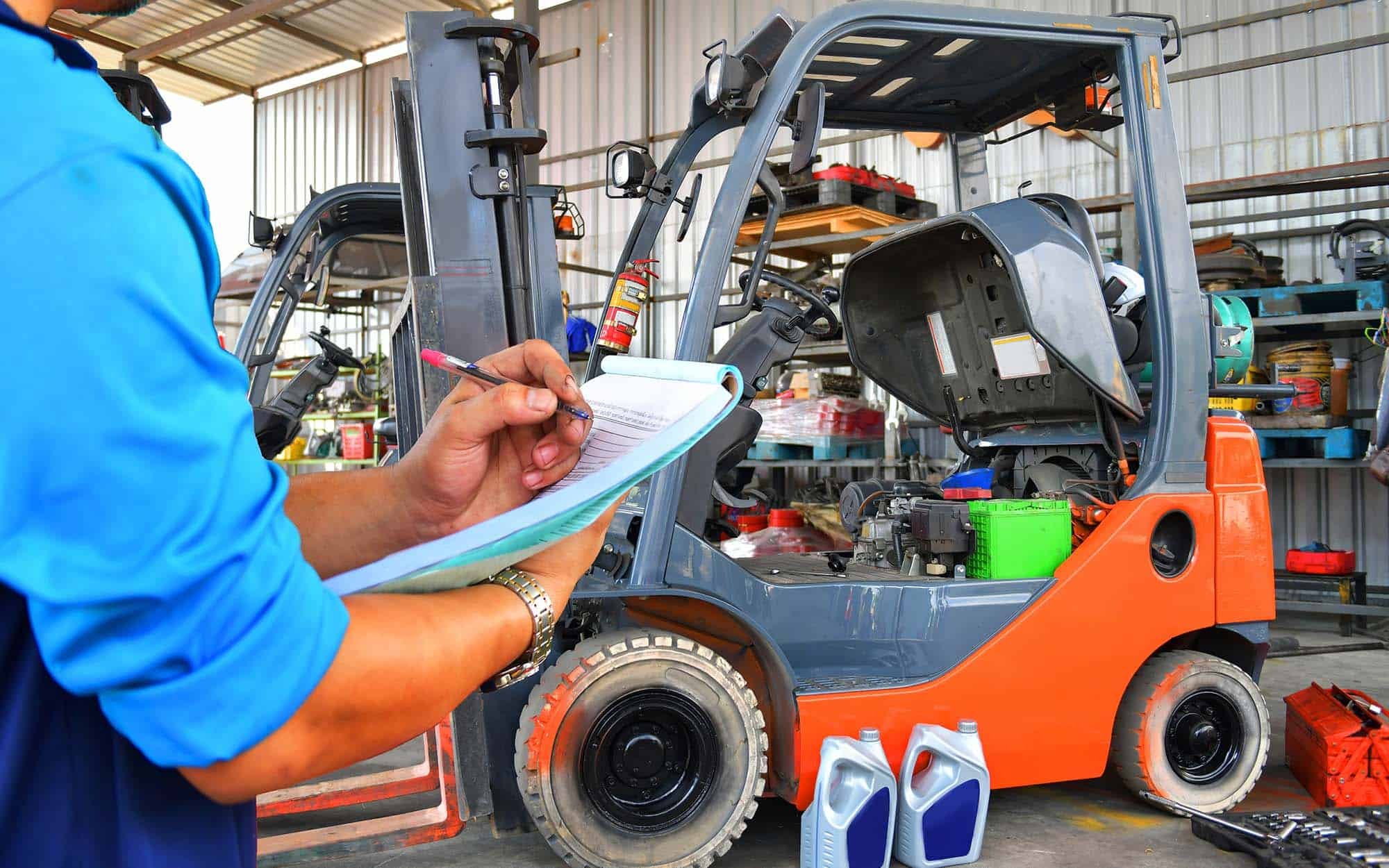
Additionally, factor in the availability of spare parts and the expertise required for specialized repairs. Ensure your plan is flexible enough to accommodate unexpected repairs but structured enough to cover all routine maintenance tasks. By establishing a detailed maintenance plan, you can minimize downtime, extend the lifespan of your forklifts, and maintain a safe working environment for your operators.
Engaging a professional maintenance partner like Upright Forklift Repair can provide the expertise and support needed to implement and sustain your maintenance strategy effectively.
